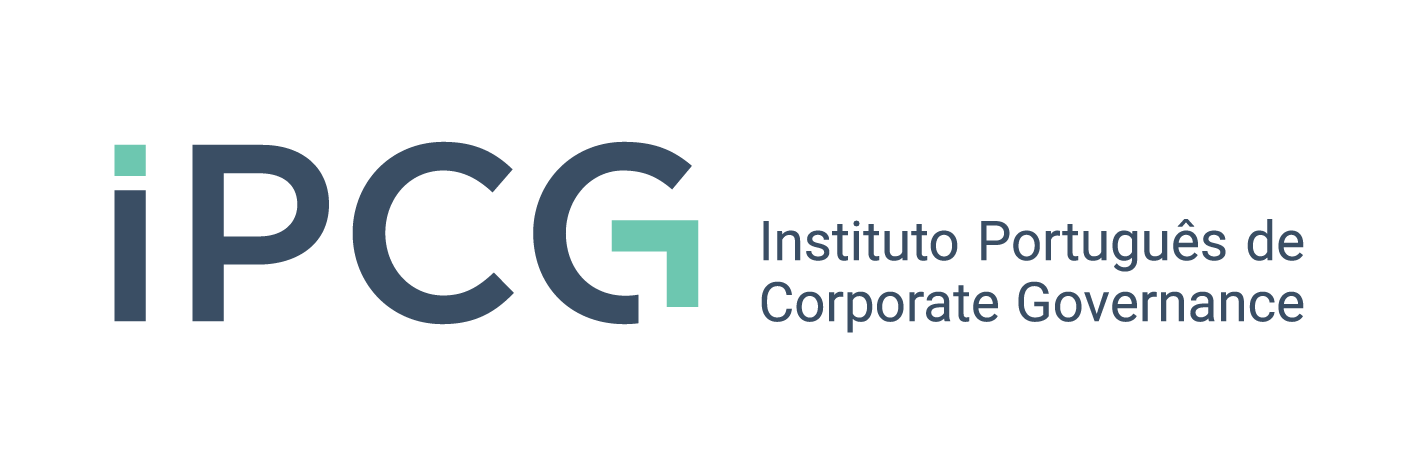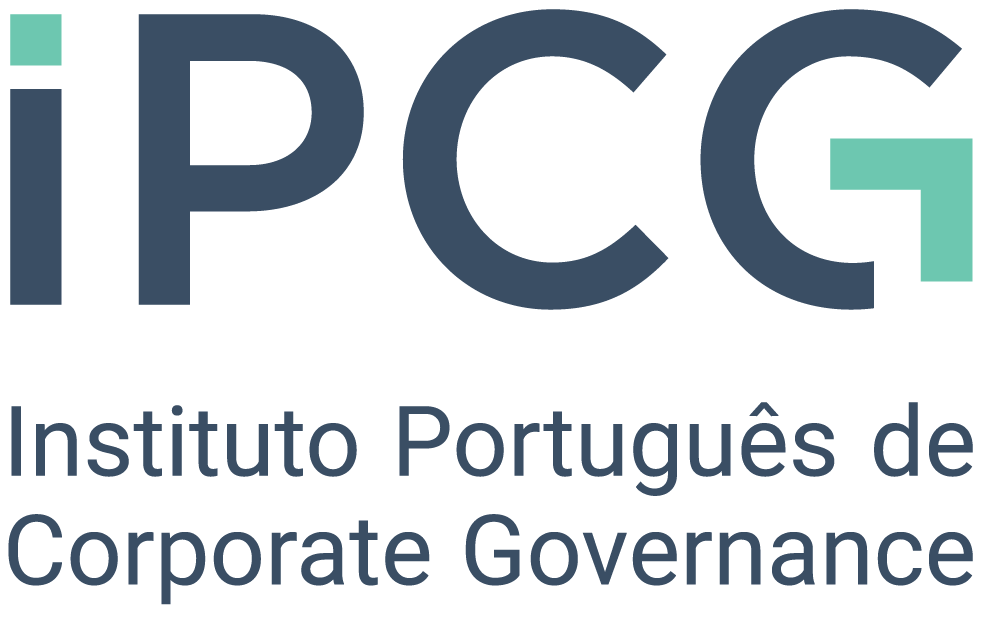Este documento reúne as respostas a um questionário sobre o governo das sociedades cotadas que a CMVM levou a cabo entre Junho e Agosto de 2008. O questionário foi enviado às sociedades de direito nacional que tinham acções cotadas no mercado português, tendo sido respondido por todas as empresas.
IPCG Notícias/Subscrição
Through its impact on corporate competitiveness and access to global capital markets, corporate governance plays an increasingly important role for entrepreneurship, economic growth and employment.
How can the efficiency of state-owned enterprises be improved? What effects do privatisation policies have on corporate governance in privatised enterprises? What role do employees play in corporate governance? This report examines these issues and provides recommendations. This publication presents the papers of the OECD conference on "State-Owned Enterprises, Privatisation and Corporate Governance" which took place in Paris on 3 and 4 March 1997. It brings together contributions from different countries highlighting different approaches to governance in state-owned enterprises and the impact of the choice of privatisation method on post-privatisation corporate governance and performance. Special attention is paid to the experience of Canada, France, New Zealand and the United Kingdom.
Poor corporate governance was identified as one of the root causes of the recent Asian financial crisis. The absence of effective disciplines on corporate managers, coupled with complicated and opaque relationships between corporations, their owners and their finance providers, affected severely investors’ confidence in the region’s corporate sectors. Economies that took early steps to improve corporate governance have been recovering from the crisis at a more rapid pace than those who have not addressed this issue. The Asian crisis showed that good corporate governance is important not only for individual corporations to raise capital but also for an economy to achieve sustainable growth. This publication includes papers submitted to the "Conference on Corporate Governance in Asia: A Comparative Perspective" held in Seoul in March 1999. These papers describe vividly the corporate governance practices in the region and the recent changes largely prompted by the crisis. Also included are papers on corporate governance in major OECD countries, which serve as a good source of comparative information on this issue. This review is part of the OECD's ongoing co-operation with non-Member economies around the world.
A l'heure de la mondialisation, de la décentralisation et des économies fondées sur le savoir, les gouvernements doivent aujourd'hui repenser le rôle des dirigeants dans le secteur public pour faire face aux nouveaux défis. En effet, cet environnement impose aux dirigeants de la fonction publique d'assumer de nouveaux rôles, notamment en tant qu'agents du changement, promoteurs de l'amélioration des performances, coordonnateurs des politiques gouvernementales et gardiens des valeurs du service public.
Au seuil du XXIe siècle, les bouleversements qui accompagnent la transformation de l’économie et de la société semblent devoir se poursuivre. L'intégration croissante des marchés, des nouvelles technologies révolutionnaires, la technicité de plus en plus marquée des activités humaines, tout indique la naissance d'un monde extrêmement complexe.
Good governance in modern times requires attention not only to shifting relations between governments, citizens and parliaments, but to the effective functioning of government itself. One important issue is "Distributed Governance" - a term coined in this publication to capture the notion of proliferating public organisations operating with some degree of separateness from core government ministries. Despite the fact that in many countries more than half of public employment and central public expenditure is carried out through such bodies, they have not been comprehensively studied from a governance perspective. Some important questions concerning these organisations that need to be addressed are: Does government have adequate oversight of them? How accountable are they? and To whom should they be accountable?
Cette publication présente cinq expériences menées par les pouvoirs publics en vue de promouvoir le développement durable au Canada, en Allemagne, au Japon, aux Pays-Bas et au Royaume-Uni. Ces pays ont été sélectionnés sur la base de leur diversité en terme de taille et de conditions naturelles. Ils présentent également une variété de conditions économiques, environnementales et culturelles. Les cinq études présentent une illustration des efforts spécifiques qui visent à l’adaptation des modalités de la gouvernance en matière institutionnelle et de prise de décision, afin de mieux répondre à l’enjeu du développement durable. Les études de cas sont introduites par une section analytique, qui met principalement l’accent sur la façon dont les différents niveaux d'administration pourraient développer des approches intégrées de la prise de décision, permettre une participation effective de la société civile, et améliorer la capacité des pouvoirs publics à« adopter une perspective à plus long terme » - c’est à dire à définir des politiques qui puissent rester durables à un horizon plus lointain.
Corporate governance matters for national development. Studies of Brazil, Chile, India, and South Africa show that corporate governance has an important role to play in helping both to increase financial capital to firms in developing countries and to enhance those countries’ financial development as a whole. They further show that corporate governance matters can contribute greatly to achieving sustained productivity growth in developing countries’ real economies. The value of improved corporate governance for development cannot, however, be considered in isolation. In the financial sector, attention must also be given to measures to strengthen the banking sector and a country’s financial institutions as a whole. To gain most from improved corporate governance in the real economy, close attention must also be given to competition policy and to reforms of sector-specific regulatory practices. The book is for civil society, NGOs and research institutes.
Corporate scandals and failures as well as broader economic concerns have driven OECD countries to devote increased attention to corporate governance which is now recognised as a vital factor in economic growth and financial stability. This survey examines the systemic issues at the forefront of the corporate governance debate and discusses how OECD countries have responded. It offers a rich variety of experiences that other countries may wish to draw on when considering their policy options.
This report presents an overview of performance-related pay policies (PRP) for government employees in selected OECD member countries over the past two decades. Both the strengths and the weaknesses of PRP policies are assessed. The report explores the various paths of reform in each country, investigating the reasons why PRP policies are being implemented and how the policies operate concretely. The outcomes of PRP policies at the individual and team levels are evaluated, and recommendations are made on what should be done or avoided with the implementation of PRP. The report includes a number of case studies.
With this publication, the WP-EV hopes to facilitate and improve dialogue and understanding among all those who are involved in development activities and their evaluation, whether in partner countries, development agencies and banks, or non-governmental organisations. It should serve as a valuable reference guide in evaluation training and in practical development work.
Managing conflicts of interest in both the public and private sectors has become a major governance issue world-wide. Identifying and resolving specific conflicts of interest can be difficult. This Toolkit focuses on specific techniques, resources and strategies for identifying, managing and preventing conflict-of-interest situations more effectively and increasing integrity in official decision-making which might be compromised by conflicts of interest. This Toolkit provides non-technical, practical help to enable officials to recognise problematic situations and help them to ensure that integrity and reputation are not compromised. The tools themselves are provided in generic form. They are based on examples of sound conflict-of-interest policy and practice drawn from various OECD member and non-member countries. They have been designed for adaptation to suit countries with different legal and administrative systems.
This assessment framework for public sector integrity provides policy makers and managers with a pioneering roadmap to design and organise sound assessments in specific public organisations and sectors. It includes practical checklists, decision-making tools and options for methodologies based on good practices. At a time when governments are increasingly required to assess pro-integrity and corruption prevention measures, this report provides a unique inventory of methods and solutions used world wide for crafting well-designed assessments. Selected case studies give more details on recent assessments in the specific country contexts of Australia, Finland, France and Korea.
Presents the OECD Guidelines on Corporate Governance of State-Owned Enterprises as well as a comparative overview of main practices and issues related to corporate governance of state-owned enterprises in the OECD area. The analytical part of the report examines the scale of these enterprises in OECD countries, organisation of the ownership function, relationships with non-state shareholders, the role of stakeholders in corporate governance, transparency and disclosure, and the board of directors. Tables in the annex compare legal status, transparency and disclosure, and board composition and functions, and CEO appointment and remuneration policies of state-owned enterprises across countries.
This publication provides policy makers, board members, managers, equity providers, creditors and other stakeholders an overview of the issues to be addressed in establishing good corporate governance of non-listed companies. While the corporate governance debate has mostly focused on listed companies with dispersed shareholdings, issues such as financial transparency, the role of access to outside capital and conflict resolution are just as important for non-listed and family controlled companies which play a major role in many economies. Contributors to this publication are policy makers, regulators and practitioners, mostly from emerging markets and developing countries including Brazil, China, India, Lebanon and Mexico. Drawing on their varied experiences, the contributors address key corporate governance issues such as the role of professional managers, the implications of specific control and ownership structures; the unique characteristics of corporate governance of non-listed companies, the adequate transparency requirements in non-listed companies, and how policy makers should inform themselves in order to facilitate better corporate governance and business performance in non-listed companies.
Turkish domestic equity markets and inward foreign investment are poised to grow rapdily but only if corporate governance standards are high enough to protect minority shareholders. This report evaluates the extent to which the OECD Principles of Corporate Governance have been implemented in Turkey, looking at both the legal and regulatory framework as well as company practices. It finds that significant reforms to the corporate governance framework have already been introduced, and supports additional legislative reforms that are already in progress. Looking ahead, the report argues that it is time to move into the next important phase in policy reform, and makes a series of recommendations for further strengthening Turkeys corporate governance structures.
Policy makers in OECD countries have increasingly come to address company law in an economic context. As company laws are being reformed, the impact of legislation on entrepreneurship, corporate competitiveness and resource allocation are becoming central issues. The OECD serves its member countries by gathering and sharing information about changes in the area of corporate governance and company law.
In response to widespread interest in the conduct and quality of audits and in oversight of auditors, in 2004 the International Organization of Securities Commissions (IOSCO), in cooperation with a group of other international organizations, developed a Survey on Regulation and Oversight of Auditors. The goal of the Survey was to obtain a point-intime description of the structures and processes in place in 2004 for regulation and oversight of auditing around the world, to serve as baseline information for regulators and oversight bodies and other organizations that are working to enhance auditor oversight and international audit quality. Organizations in many countries around the world are presently considering and/or implementing changes to auditor oversight structures and quality assurance processes.
During its Amman meeting on May 17th of 2004, the IOSCO Technical Committee (“TC”) approved the mandate proposed by Technical Committee Standing Committee on Investment Management (“SC5”) regarding “Examination of Governance for Collective Investment Schemes.” The mandate directs SC5 to establish broad general principles for Collective Investment Schemes (“CIS”) Governance based on a review of both its past work and the results of a survey concerning CIS Governance in SC5 member jurisdictions.
The Technical Committee of IOSCO (TC) decided in 2005, as stated in the report on “Strengthening Capital Markets against Financial Fraud”, to undertake additional descriptive, thematic analyses of the definition and role of independent directors on the boards of issuers. This is perceived as a key element to reinforce Corporate Governance and, therefore, improve the integrity of capital markets.
» William T. Allen just published at Harvard Business Review a short article of opinion in defense of the CEO role and power, criticizing as a "bad idea" the gradually accepted view that corporate governance best practices require the split of the roles of board chairman and CEO. The January 2003 report of the Conference Board's Commission on Public Trust and Private Enterprise recommended this dual power structure. Allen co-authored the article at HBR with William R. Berkley, chairman, founder and CEO of W.R. Berkley Corp, in Greenwich, Connecticut, USA. His main argument is simple: the dual power will increase organizational tension and intrigue. In times of even moderate stress, such a system would tend to default into duelling centres of authority. And it will subvert the corporation's commitment to the unitary board.
4º Inquérito Sobre Práticas Relativas ao Governo das Sociedades Cotadas no Mercado de Cotações Ofici
Alan Greenspan admite que a corporate governance saiu afectada, mas não profundamente, dos últimos escândalos ligados à"contabilidade criativa". Mas nem tudo está perdido e o presidente da FED mostra-se confiante em que melhores dias virão. Mas, de qualquer das formas, "as regras não podem substituir o carácter", alertou.
Empresas cotadas transparentes, que divulguem informação correcta e atempada, é o objectivo que norteia as reformas normativas que estão em curso nos EUA e na Europa. Em Portugal, cuja bolsa se fica pela meia centena de empresas cotadas, não se sentiram as réplicas dos abalos que assolaram os mercados financeiros da América. O que não é razão para nos congratularmos. A corporate governance esteve em foco numa conferência organizada pela CMVM e pelo IIMV, que provou ser aquela uma preocupação das empresas portuguesas cotadas - POR CRISTINA PEREIRA
Os analistas devem ser certificados. Foi este o recado dos bancos à CMVM, na conferência organizada por aquele organismo e pelo IIMV em Dezembro último. De facto, representantes do BES e do Santander sugeriram a certificação dos analistas financeiros como condição para exercerem a sua actividade. Mais uma medida que visa reforçar a transparência da informação nos mercados de capitais - POR CRISTINA PEREIRA
A KPMG foi processada pela SEC, que acusa a empresa e quatro dos seus partners de fraude nas auditorias conduzidas às contas da Xerox entre 1997 e 2000. Há já quem antecipe uma repetição do escândalo Enron, que arrastou para o abismo a Andersen, mas a KPMG insiste na rectidão da sua postura - POR CRISTINA PEREIRA
Reforçar a protecção dos investidores, atrair investidores para a praça financeira europeia e melhorar a eficiência, o grau de abertura e a integridade dos mercados de capitais na União. São estes os objectivos de uma proposta de directiva apresentada pela Comissão Europeia que visa introduzir requisitos mínimos de transparência nas informações prestadas pelas sociedades cujos valores são negociados num mercado regulamentado. Esta proposta pretende modernizar a actual regulamentação dos mercados de capitais que, segundo a Comissão, não está adaptada à economia global - POR ROGER MOR
O desvio do enfoque na estratégia para o cumprimento das regras de corporate governance e o aumento dos custos de auditoria, consultoria e recrutamento são algumas das preocupações dos executivos face às novas regras de corporate governance. Christopher Clarke, presidente da Boyden, deu uma conferência sobre o tema em Lisboa e apresentou os resultados de um estudo conduzido no Reino Unido, EUA e Austrália - POR CRISTINA PEREIRA
Discurso de Este endereço de email está protegido contra piratas. Necessita ativar o JavaScript para o visualizar., Director Geral da entidade responsável por coordenar as políticas da Comissão no Mercado Único, proferido, a 19 de Setembro de 2003, durante o fórum da Federação Europeia de Fundos e Sociedades de Investimento.
Consulte os relatórios apresentados à CMVM, elaborados pelas empresas portuguêsas cotadas em bolsa.
William T. Allen just published at Harvard Business Review a short article of opinion in defense of the CEO role and power, criticizing as a "bad idea" the gradually accepted view that corporate governance best practices require the split of the roles of board chairman and CEO.
Este estudo foi elaborado a partir de informação publicada no site da CMVM e visa compreender e descrever a evolução das práticas de Corporate Governance em Portugal, analisar o grau de cumprimento das Recomendações sobre o Governo das Sociedades cotadas e analisar as tendências e perspectivas de evolução futura.
Depois das questões que se têm levantado sobre a adopção do sistema de corporate governance que assenta na co-existência de um Chairman e de um CEO, fica mais claro, em Portugal, o que há um ano William T. Allen, director do Centro de Direito Empresarial da Universidade de Nova Iorque, explicou em entrevista sobre o debate internacional deste tema . POR JORGE NASCIMENTO RODRIGUES
Pág. 3 de 5
Morada
Av. Eng. Duarte Pacheco
Amoreiras Torre 2, 14.º E
1070-102 Lisboa
Informações
Telf.: (+351) 21 317 40 09
Tlm.: (+351) 968 586 871
Fax: (+351) 21 936 28 23
Outros Contactos: Formulário Online
WhatsApp: https://wa.me/351968586871/
Período de Funcionamento
Horário
09h00 - 13h00
14h00 - 18h00
Encerrado
Fins-de-semana e feriados



